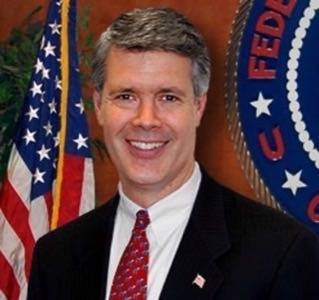The man who helped put the issue of possible United Nations oversight of Internet governance back on the radar in the United States, stepped up his rhetoric Tuesday at a speech at Mobile World Congress in Barcelona. FCC Commissioner Robert McDowell told the audience that a move back to the regulatory model of the International Telecommunications Union – the UN-sponsored body that Russia and other nations would like to see put in charge – would lead to a nightmare scenario of bureaucracy and multi-government regulation.

But learning a lesson from the SOPA/PIPA debate, this time Comm. McDowell added one more element to the mix: He argued ITU oversight could threaten the way the Internet actually works.
“We are at a crossroads for the Internet’s future. One path holds great promise, while the other path is fraught with peril,” stated Comm. McDowell. “The promise, of course, lies with keeping with what works, namely maintaining a free and open Internet while insulating it from legacy regulations. The peril lies with changes that would ultimately sweep up Internet services into decades-old ITU paradigms. If successful, these efforts would merely imprison the future in the regulatory dungeon of the past. Even more counterproductive would be the creation of a new international body to oversee Internet governance.”
ICANN has recently come under fire for the way it has handled the expansion of the top-level domain system. It will eventually add any number of generic TLDs (gTLD) purchased by private registrants. More recently, however, it’s been criticized for letting the .XXX domain system become a kind of legitimized blackmail, where institutions are registering themselves all over again – sometimes at a premium – just to prevent others from registering those same names in an exploitative fashion.
Any amount of ICANN controversy is enough to trigger the ire of Russian President/Prime Minister/President Vladimir Putin, who openly supports replacing ICANN with the ITU in a move that he says would be good for private enterprise and the global economy.
Though Comm. McDowell is a Republican and thus in the minority under a Democratic president, his views on this subject have never failed to be forceful and emphatic. “Whatever the complaints are regarding ICANN, they should not be used as a pretext to end the multi-stakeholder model which has served all nations – and the developing world now more than ever – so well,” he told MWC.
While modification of the governance structure may indeed be necessary, McDowell conceded, that fact should not be used as a guise to inject certain governments’ regulatory structures into the system. Doing so may disable smaller countries’ ability to be perceived as equal players, and some countries, he added, may end up surrendering some of their sovereignty in a new and mostly digital economy.
“It would be a travesty to create a world where the Internet is partitioned between countries that live under an intergovernmental regulatory regime and those member states who decide to opt out,” McDowell concluded. “A balkanized Internet would be devastating to global free trade and rising living standards. It would also render an engineering morass. Nations that value freedom and prosperity should draw a line in the sand against new regulations while welcoming reform that could include a non-regulatory role for the ITU. Venturing into the uncertainty of a new regulatory quagmire will only undermine developing nations the most. As a world community, we cannot afford to make that mistake.”

















